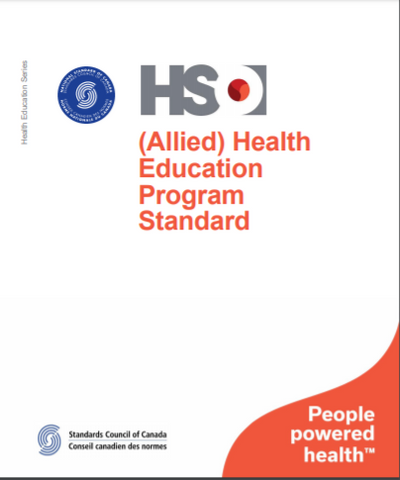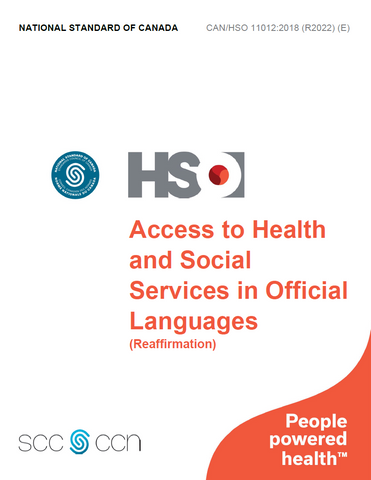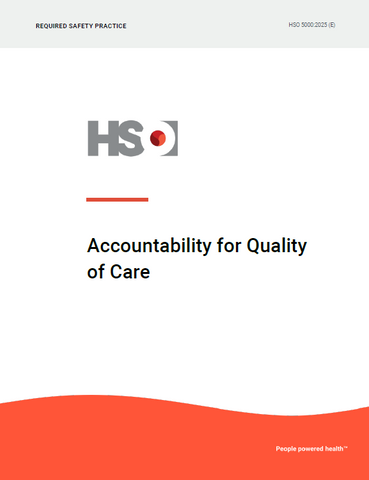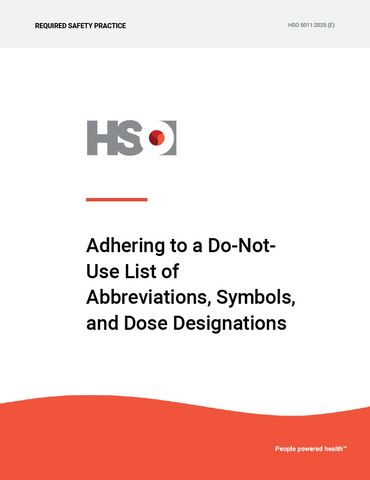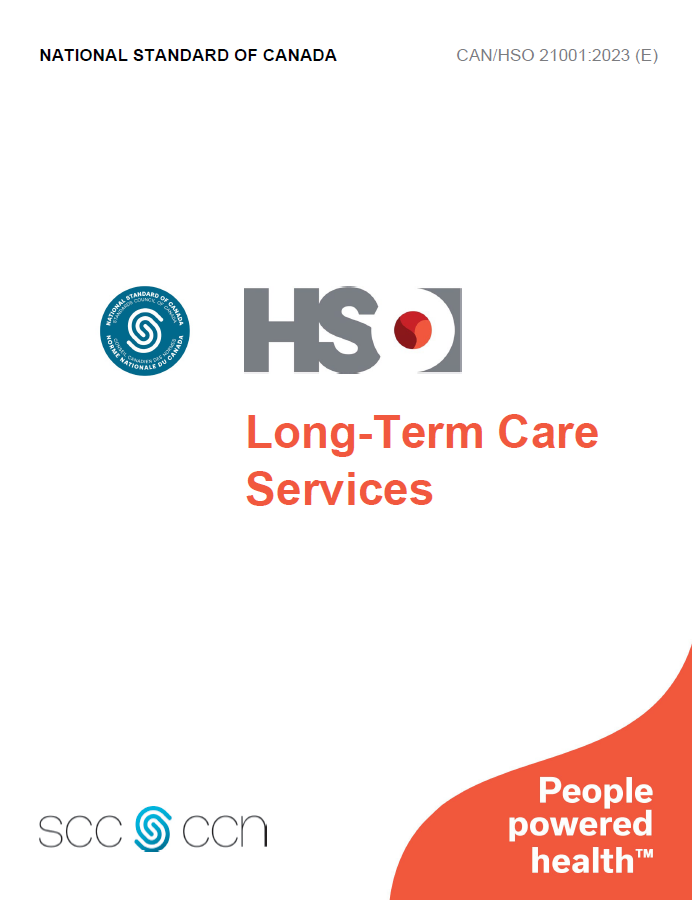
Long-Term Care Services - CAN/HSO 21001:2023 (E)
About HSO's Standards
HSO’s standards are the foundation on which leading-edge accreditation programs and evidence-informed public policy are built. Standards create a strong people-centred health care system that stakeholders can rely on to enable people around the world to continuously improve quality of care.
HSO’s standards are formatted using the following structure:
- Section title. A section of the standard that relates to a specific topic.
- Clause. A thematic statement that introduces a set of criteria.
- Criteria. Requirements based on evidence that describe what is needed by people to achieve a particular activity. Each criterion outlines the intent, action, and accountability.
-
Guidelines. Additional information and evidence to support the implementation of each criterion.
About This Standard
CAN/HSO 21001:2023 (E) Long-Term Care Services standard is a revision of the HSO 21001:2020 Long-Term Care Services standard.
CAN/HSO 21001:2023 (E) Long-Term Care Services is based on findings from literature reviews, clinical expertise, evidence-informed practices, and those with lived experiences. The published evidence used to inform this standard can be found in the bibliography.
The standard focuses on promoting good governance; upholding resident-centred care and enabling a meaningful quality of life for residents; ensuring high-quality and safe care; fostering a healthy and competent workforce; and promoting a culture of quality improvement and learning across long-term care (LTC) homes. The target audiences for the use of this standard include LTC home residents, substitute decision makers, essential care partners, the workforce, leaders, and governing bodies.
The content of this standard is structured into the following sections:
- Governing LTC Home’s Strategies, Activities, and Outcomes
- Upholding Resident-Centred Care
- Enabling a Meaningful Quality of Life for Residents
- Ensuring High-Quality and Safe Care
- Enabling a Healthy and Competent Workforce
- Promoting Quality Improvement
This standard integrates the principles of equity, diversity, and inclusion outlined in Annex A: Guiding Principles for Equity, Diversity, and Inclusion.
This standard guides LTC home teams, leaders, and governing bodies on
- providing evidence-informed, resident-centred care that values compassion, respect, dignity, trust, and a meaningful quality of life;
- working in a team-based way to deliver high-quality care that is culturally safe and trauma-informed to meet residents’ goals, needs, and preferences;
- enabling a healthy and competent LTC home workforce and healthy and safe working conditions; and
- upholding strong governance practices and a culture that is outcome-focused and committed to continuous learning and quality improvement.
In addition to the above, the standard also provides
- external assessment bodies with evidence-informed content that can be used in assessment programs; and
- decision makers with a quality and safety blueprint to guide policy development and requirements to ensure the delivery of high-quality, resident-centred care and enable a healthy and competent workforce.
The published evidence used to inform this standard can be found in the bibliography.
This standard is intended to be used as part of a conformity assessment. This standard will undergo periodic maintenance. HSO will review and publish this standard on a schedule not to exceed five years from the date of publication.
Scope
Purpose
This standard provides LTC home teams, leaders, and governing bodies with criteria and guidelines for delivering resident-centred, high-quality care, enabled by a healthy and competent workforce.
Applicability
This standard applies to teams, leaders, and governing bodies of LTC homes. LTC homes, also referred to as continuing care, personal care, or nursing homes, are settings where people with complex health care needs live. LTC homes are formally recognized by jurisdictions with a licence or permit and are partially funded or subsidized to provide a range of health and support services, such as lodging, food, and personal care for their residents 24 hours a day, 7 days a week (Canadian Institute for Health Information, n.d.).
The defined resident population for this standard are adults who live in LTC homes.
In this standard, we use the term “resident” to refer to people who live in an LTC home. We recognize that this term might not be appropriate in all contexts. LTC home teams and leaders will respect the preference of those living in the LTC home as to what they would like to be called.
Acknowledgements
This National Standard of Canada was produced with funding and support from the Standards Council of Canada (SCC). It is the result of collaboration between SCC, HSO, and the Canadian Standards Association (CSA Group) to develop two new complementary National Standards of Canada for long-term care.
![]()
HSO is grateful to and acknowledges the valuable contributions of the British Columbia Cultural Safety and Humility Technical Committee in developing HSO 75000:2022 British Columbia Cultural Safety and Humility which informed this standard.
HSO is an independent, not‑for‑profit corporation and is registered in Canada as a charity, in accordance with Canada Revenue Agency rules, with a mandate to enable and empower people around the world to continuously improve quality of care.
While designated as a Standards Development Organization by the Standards Council of Canada (SCC), HSO operates independently from SCC. HSO does not receive ongoing funding from SCC, other crown corporations of Canada, or federal or provincial entities.
HSO charges a nominal fee to help offset the associated costs of development and maintenance of HSO standards, as most HSO standards are self-funded.
If cost is a barrier to accessing an HSO standard, please email publications@healthstandards.org and a team member will assist you.
Standards available for purchase through this E-Store are considered HSO standards and must only be used in accordance with applicable HSO Terms of Use or client agreement and are not applicable for assessment purposes. If you are part of an assessment program such as the Qmentum accreditation program, with one of our partners including Accreditation Canada, Qualicor Europe, IQG, or IQMH, your assessment body will provide you with the assessment standard prior to the standard being incorporated into your program and used for surveys or assessment purposes. For information on assessment standards, or to obtain the version specific to your program, please contact your assessment provider.
Standards purchased online are delivered as printable PDF downloads. If you would like a copy printed and shipped to you, please email publications@healthstandards.org.

